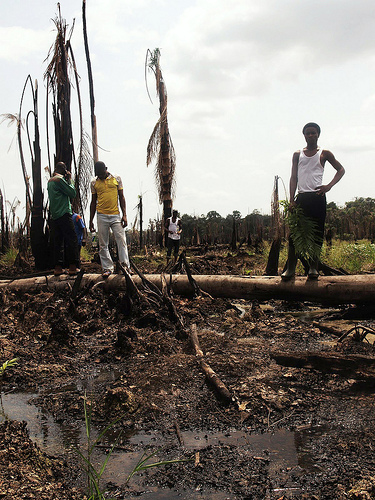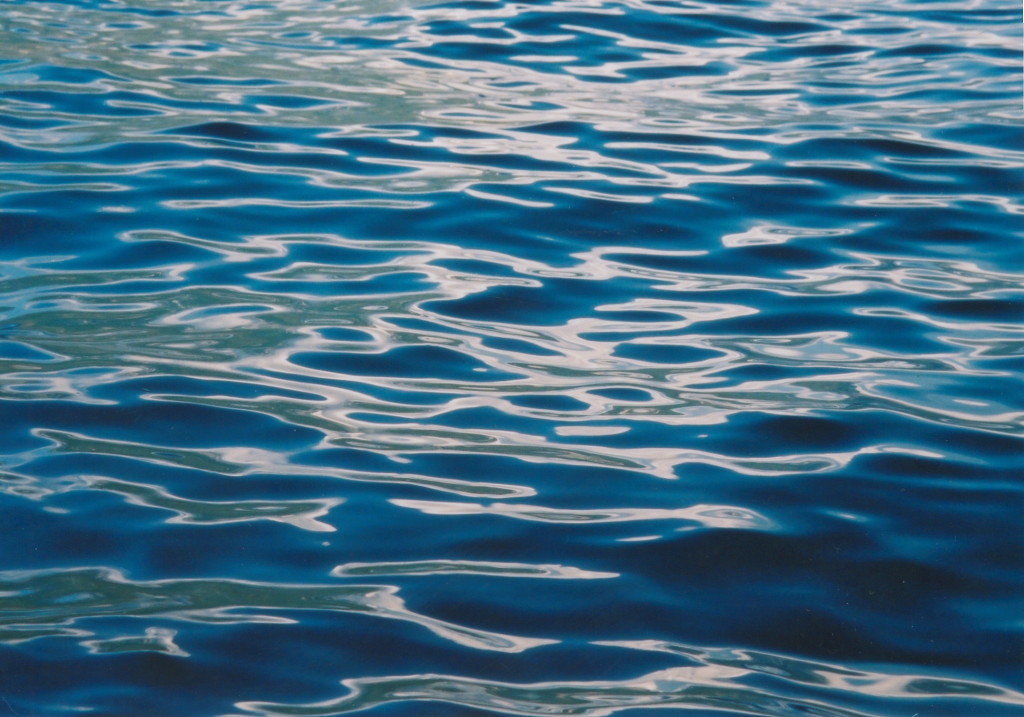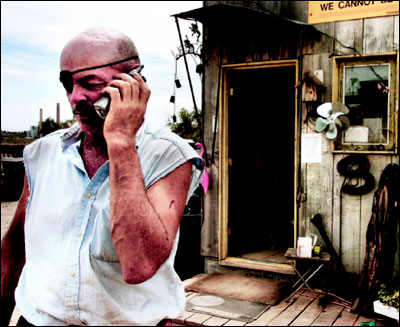 Following more than 50 years of oil extraction, corruption, human rights violations and environmental degradation, Shell has admitted responsibility for two large oil spills in 2008 and 2009 in the Niger Delta. This admission will allow those affected to seek damages through the British court system, which gives groups in the Delta, specifically Ogoniland, the first attempt at legitimate recourse since Shell first arrived on the scene in the 1950s.
Following more than 50 years of oil extraction, corruption, human rights violations and environmental degradation, Shell has admitted responsibility for two large oil spills in 2008 and 2009 in the Niger Delta. This admission will allow those affected to seek damages through the British court system, which gives groups in the Delta, specifically Ogoniland, the first attempt at legitimate recourse since Shell first arrived on the scene in the 1950s.
Concurrently, the United Nations Environment Program (UNEP) will be turning over the most comprehensive independent report ever taken on environmental damage in the Delta to the Nigerian government. The goal is to hold appropriate parties responsible and to make policy recommendations in order to clean up on of the most diverse ecosystems on the planet.
Shell’s history in Nigeria is a long and incredibly complex one. Although the company was not the first one on the scene when oil was discovered in Nigeria in the first half of the 19th century, the company has been there longest (save for a brief respite during the Ken Saro-Wiwa trial and hanging). There have been many instances of environmental damage, which the company often claims was a result of looters and rebel groups through illegal bunkering (in some instances true) and many human rights violations including silencing witnesses in the few cases that have become public. The biggest issue has been the long-time gray area between the actions of the Nigerian government (mainly a military dictatorship until 1999) and Shell, mainly as a result of the Shell Petroleum Development Company (SPDC). The World Bank believes the Nigerian government has embezzled $400-$500 billion since Shell began work in country.
But today marks a chance to move forward and finally compensate those who have lived in the Delta and have seen the destruction and the loss of their livelihood due to oil on their shores. It also marks a precedence set by Shell, one in which they have been unwilling to set for all these years. Allowing Nigerians to file formal cases against the company through the British court system could open the floodgates for past and future cases to be opened.
Also interesting is the amount of outrage that the BP was subject to (and rightfully) so, during the Gulf spill last year, yet very few realize that spills of this size have been going on in the Niger Delta for the last 50 years completely under the radar. As stated in a recent MSNBC article by a lawyer representing the case, it appears as though the double standard that has existed for so many years, regarding oil companies’ responsibilities in developed compared to developing countries may finally start to change.
It’s too early to tell what affect these two actions will have on the environment and the people of the Niger Delta, but there’s no question both Shell’s admission of guilt and the UN report to clean up the Delta have been a long time coming.
Image Credit by Sosialistisk Ungdom via Flickr under a CC license



